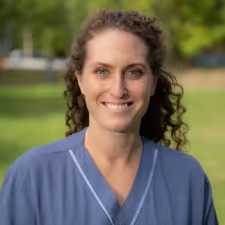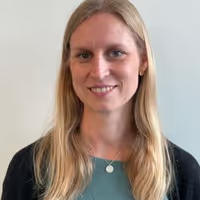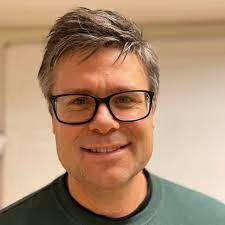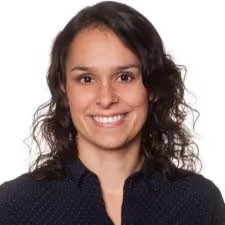Allocation of Research Grants
Five researchers from Karolinska Institutet, KTH, Umeå University, and the University of Gothenburg have been awarded research grants to investigate the onset of ALS, new treatment methods, and improvements in care for those affected, as well as support for families.
Börje Salming ALS Foundation allocation of research funds in 2023
Below is a description of each research area that has been awarded funding from the Börje Salming ALS Foundation.
Neuroprotective and Neurotoxic T-Cells in ALS

Caroline Ingre, Karolinska Institutet
The project aims to investigate and understand the role of the immune system in the neurological disease ALS.
The research will examine how T-cells in the immune system, specifically T-effector and T-regulatory cells, affect the progression of the disease.
Previous studies have found that different types of T-cells can influence how rapidly ALS spreads, thereby affecting patients' survival times. The goal of the project is to understand how these T-cells function in ALS and use that knowledge to develop a new treatment method.
To achieve this goal, the researchers will carry out two main parts of the study:
1. Understand how T-effector and T-regulatory cells function in ALS.
2. Conduct a new clinical treatment study in which they will manipulate these T-cells to reduce the disease's aggressiveness and increase survival time.
The overarching ambition of the study is to increase understanding of the immune system's role in the disease and develop a treatment method that can improve the quality of life and survival time for people with ALS.
Grant Award: 1.8 million SEK over three years.
Protein Markers for Predicting Disease Progression and Survival in ALS

Anna Månberg, Royal Institute of Technology (KTH)
Currently, ALS is mainly diagnosed based on the patient's symptoms, and there is a significant need to identify biomarkers in blood or cerebrospinal fluid that indicate the presence of ALS, making diagnosis easier and predicting disease progression.
The project analyzes blood samples from approximately 500 ALS patients using advanced analytical techniques.
By measuring the levels of over 3,000 proteins and linking them to disease progression and survival after symptom onset, researchers hope to identify proteins that can serve as clinical markers.
These markers are valuable for improving diagnosis, predicting disease progression, optimizing the selection of patients for clinical trials, and evaluating the effects of new drugs.
Grant Award: 1 million SEK over two years.
The Significance of Protein Structures in ALS - From Biological Studies to Clinical Trials

Karin Forsberg, Umeå University
The project examines the protein superoxide dismutase 1 (SOD1), which has previously been linked to hereditary ALS and appears to be a crucial factor in the disease's development.
The researchers have several goals:
1. Understand how and where ALS originates in the central nervous system (CNS) and how the disease spreads to prevent disease development.
2. Analyze patterns in specific areas of the CNS to explain why changes in the same genetic traits can lead to different forms of the disease.
3. Study how proteins interact with various parts of the nerve cells that the disease attacks to identify disease-related markers.
4. Conduct clinical treatment trials to test substances that can prevent SOD1 from damaging nerve cell function.
The researchers use a unique biobank with blood and tissue samples from ALS patients and their relatives collected over 30 years.
The results of the project can increase understanding of ALS, contribute to new treatment methods, test potential treatments, and provide knowledge applicable to other neurodegenerative diseases where faulty proteins cause damage to the CNS.
Grant Award: 1.5 million SEK over three years.
New Treatment Methods for ALS - Studies of SOD1 Prions to Identify New Pharmacological Targets

Per Zetterström, Umeå University
The project investigates the protein SOD1, which in patients with hereditary ALS can damage nerve cells by misfolding and aggregating.
The project examines the various forms of SOD1 aggregates found in ALS patients, whether they can be used as a marker for diagnosing the disease, and if treatments targeting SOD1 aggregates can be developed.
The researchers hope to achieve results that lead to new and more effective treatment methods.
Grant Award: 1.5 million SEK over three years.
Support Intervention for Families Affected by ALS

Anneli Ozanne, University of Gothenburg
The research aims to develop a support system for families affected by ALS.
Despite the significant suffering ALS causes to patients and the profound impact on families, practical and psychological support for families is often lacking.
The project will assess the needs of those affected by ALS and their families. Based on this knowledge, a support intervention will be created, covering the entire disease process with a focus on patients, adults, children, relatives, and healthcare personnel.
By including participants from across the country, the project can provide comprehensive insights into the care of ALS patients and their families at a national level.
The hope is that the introduction of a support intervention will increase the possibility of fairer care and prevent illness for these families in both the short and long term.
Grant Award: 500,000 SEK for one year.
